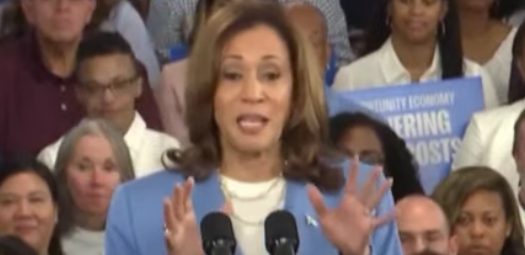Opinion | The author's opinion does not necessarily reflect Sarah Palin's view.
Rumble CEO Chris Pavlovski discussed an antitrust lawsuit filed by Rumble and X against a coalition of advertisers accused of coordinating a boycott against their platforms.
He shared evidence showing advertising agencies pressuring companies to distance themselves from right-wing creators to secure ad deals.
Pavlovski criticized this collective action as a form of a “harmful monopoly,” claiming it restricts free market principles by allowing groups like the World Federation of Advertisers to dictate advertising standards based on perceived brand safety.
This discrimination against certain voices raises advertising costs and negatively impacts both creators and viewers on Rumble.
“If you’re an advertiser and you don’t wanna advertise on Rumble or X, that’s totally fine. You have the option to do that. But the problem happens when you have a consortium, or a group like the world federation of advertisers, or the group that they created called GARM, which then assembles all these advertisers and agencies, which creates a huge amount of power for GARM to basically instruct these companies on whether or not and how they want to employ brand safety standards,” Pavlovski said.
“They then can now discriminate against certain voices on other platforms,” he added. “If they don’t like what some speech might happen on Rumble or X, they can say, we’re not going to touch that, which then causes advertising rates to go higher because now they’re only accessing a certain portion of the market and then drives higher prices for their shareholders and their brands. This harms the advertisers, the shareholders, it creates a higher fees for the agencies and also harms Rumble creators and Rumble viewers and the Rumble platform.”
He highlighted specific instances, including emails from major brands like Diageo and Inspire Brands, expressing their refusal to advertise on platforms hosting right-wing content.
“To be honest [redacted], I would be opposed to showing up on the current version of the platform — the right-wing culture of the site is too polarizing from a brand standpoint today,” an Inspire Brands representative wrote in an email.
Pavlovski emphasized that such practices violate antitrust laws and the Sherman Act by manipulating how advertisers allocate funds in the marketplace.
“When you have a monopoly and you create a monopoly by assembling all this power and control to dictate a certain standard of how you’re gonna spend that money, that’s not a free market. The Sherman Act does not allow that,” Pavlovski said.
“So that’s illegal. There’s different rules and standards when you’re a monopoly. And what the World Federation of Advertisers has done is they created a monopoly to basically tell all these advertisers how they should spend money based on certain speech,” he said.
“So you can’t use the First Amendment by having a monopoly to dictate how you’re going to deploy funds. This is harmful to their advertisers. It’s harmful to the Rumble creators. And it’s basically, there’s a completely different set of rules when you’re in monopoly, and that’s how you have to look at this. They monopolize the ad budgets.”









